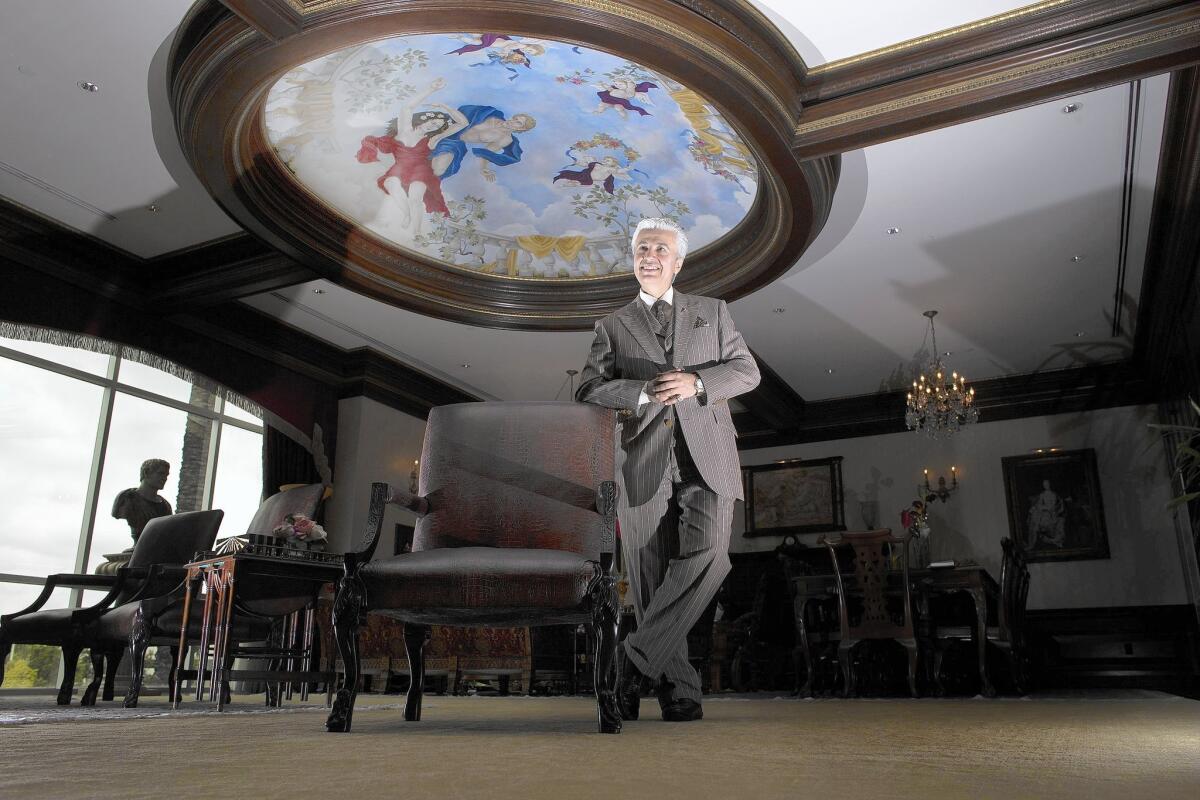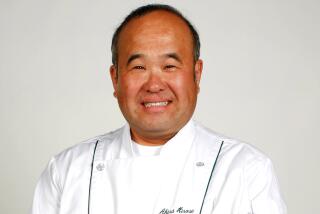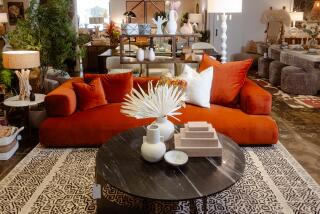How an unhappy electrical engineer became a thriving furniture designer

The gig: Michael Amini, 58, was an unhappy electrical engineer who went from designing circuits to designing furniture. His Pico Rivera company, Amini Innovation Corp., also known as Aico, sells products through more than 3,000 retailers in more than 80 countries in North America, Europe, the Middle East and Asia. The firm employs about 200 people.
The brand: Amini said he envisions his traditional-style furniture as a lifestyle brand “that someone doesn’t just sit on. It’s furniture you want to show off to your friends.” Lately, the Amini brand has included rugs and wall art. A dining room set averages $5,000 to $9,000 but can run as high as $20,000.
A reluctant engineer: Amini’s father, John, ran a successful business in Tehran that made kidney dialysis machines. By mutual agreement, they decided Amini should get an engineering degree from Cal State Long Beach and perhaps someday work for his father’s company. But 14 months into his first job designing circuits at a Brea company, “I was so bored. I needed to use my talent in a totally different way,” Amini said. “I thought I’d better design things that people can see and appreciate.”
Designing a future: “I tried the fashion industry, designing apparel, leather jackets and shoes. That didn’t go anywhere. I tried the auto industry and that didn’t go very well.” In 1988, Amini began selling furniture for a now-defunct Los Angeles company. “As much as I didn’t like it at the time, I did it to earn a living,” Amini said. “I was not only an aggressive salesman. I designed a couple of bedroom sets for them that became their bestsellers.”
Rejection as motivator: Amini figured his work had earned him the right to attend one of the biggest furniture shows at the time, in Taiwan, where he could learn more about what designs would be bestsellers. The company told him that he couldn’t go. When Amini went on the trip anyway, he was fired. “I’m really appreciative for that,” Amini said, “because that led me to start my own company.”
One-man show: Amini registered the name Aico in November 1988. He sold furniture for manufacturers but his real interest was his own line, which he started with $7,000 and a small warehouse where he would repair and improve damaged or used items and resell them under the Aico name. Within a few months, he had imported his first full cargo container filled with furniture he had designed, using his contacts with a manufacturer in Taiwan. Customers were confused. “They would ask, ‘Who are you? You’re the salesman? You’re the delivery driver? You’re the builder?’” In fact, he was all three. That mixture of tenacity and creativity drove his success, he said.
Discerning eye: Amini thinks that he, like certain photographers and artists, has an ability to see things differently and to use what he sees as the basis for new designs for his ornate furniture. “I am one of the few men I know who loves shopping as much as my wife does,” Amini joked. During a recent vacation in Munich, Germany, for example, he took time to visit decades-old jewelry shops whose products are largely unknown internationally. “I saw a certain curve on a piece of jewelry and thought, ‘I could design a whole room off of that, for the top of a china buffet, or to make a table leg.’”
Hands-on leader: Amini said he still designs all of the furniture, knowing how it will look before it’s even rendered in a drawing or on a computer. For his management team, Amini said he is careful “to find like-minded people who feel as passionate about the work” as he does.
Father’s advice: “Spend your company’s money like it is your own,” Amini recalled his father saying, “meaning do not waste it.” His father also warned him to stay out of debt. Amini listened. “We try to never take out loans. Everything we make in profits, we try to pour back into the company.”
Not flattered: Over the years, Amini’s company has been aggressive in filing lawsuits against competitors that he contends have imitated its design patents, copyrights and trademarks. “We feel compelled to protect our rights under the law,” Amini said, adding that it was vitally important to safeguard his company’s creative assets. “Infringing on our intellectual property, copyrights and design patents is a serious legal violation that we will always vigorously defend.”
Giving back: Amini is president of the American Home Furnishings Hall of Fame Foundation, which each year honors people who have contributed to the U.S. furniture industry’s growth. In 2009, City of Hope named its new transfusion medicine center after Amini in recognition of his $6-million contribution to the $20-million building effort.
Personal: Amini said he has little leisure time. “I still work 20 hours a day and feel like I need to work 24 more.” When he can break away, Amini and his wife of 18 years, Lily, travel with teenage sons Kian and Iman. A recent vacation took the family to Dubai, and a safari in South Africa is next. As usual, Amini said, he will be keeping an eye out for things he might use to design new furniture.
Twitter: @RonWLATimes
More to Read
Inside the business of entertainment
The Wide Shot brings you news, analysis and insights on everything from streaming wars to production — and what it all means for the future.
You may occasionally receive promotional content from the Los Angeles Times.











